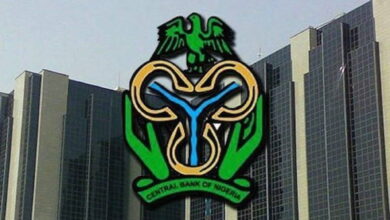Africa risks losing $189.7bn of GDP in 2020, says AfDB

The Africa Development Bank [AfDB] has projected that African countries could lose between $145.5 billion and $189.7 billion of GDP in 2020 as a result of the Coronavirus pandemic.
In a comprehensive socio-economic assessment of the pandemic’s impact contained in the recently launched African Economic Outlook 2020 Supplement, the Bank said growth was now projected to rebound to 3 per cent in 2021 from -3.4 per cent in the worst-case scenario for 2020.
The supplement cautioned that the growth outlook for 2021 and beyond would depend largely on African governments’ effectiveness in flattening the curve of the outbreak and policies to reopen economies.
The supplement noted that the curve of the pandemic in Africa was flattening gradually. However, COVID-19 remains a serious threat to lives and livelihoods, given weak healthcare systems and limited social protection. The continent also remains vulnerable to other regional threats such as the locust swarms that have struck East Africa, as well as to extreme climate events.
Hanan Morsy, Director of the Macroeconomic Policy, Forecasting and Research Department at the African Development Bank, said “The African Economic Outlook 2020 Supplement shows that for the first time in the last half-century, Africa would be facing an economic recession as a fallout of the COVID-19 pandemic.
“This would affect the gains achieved in poverty reduction as an estimated 49 million Africans could be pushed into poverty, with about 30 million jobs at the verge of disappearing. Policymakers need to act fast to alleviate the impact of the crisis on vulnerable groups through well targeted social safety net measures.”
The report called for urgent policy interventions to mitigate the impact of the pandemic: “Across Africa, the response must be well-sequenced and multipronged, involving a public health response to contain the spread of the virus and minimise fatalities, a monetary policy response to ease liquidity constraints and solvency risks, and a fiscal response to cushion the economic impacts of the pandemic on livelihoods and to assist businesses.”





